This is an ongoing work on Muslim education and social effects in India. According to the Union Ministry of Human Resource Development only eleven in every hundred Muslims in India pursue higher education– much lower than the national average (18.8%). The draft report, based on National Sample Survey (2009-10) data, attributes the low percentage among Muslims to “various socio-economic reasons”. The situation is worse in rural India where only 6.7% Muslims pursue higher education.
Muslim education in India has traditionally been governed by the madrasa system of education, which places greater emphasis on religious studies. The result is that graduates from madrasas, despite their years of education, often find it difficult to cope with the curriculum when they go for higher studies in colleges and universities, forcing many of them to drop out in between.
The system is witnessing a gradual shift towards modern curriculum of late, especially in urban and semi-urban areas where many madrasas are now affiliated to state education boards. In many areas dominated by the community several NGOs are campaigning with help of local scholars to spread awareness about the importance of education and encouraging parents to send their kids to school. These are very small steps compared to the magnitude of the problem, but important nevertheless.
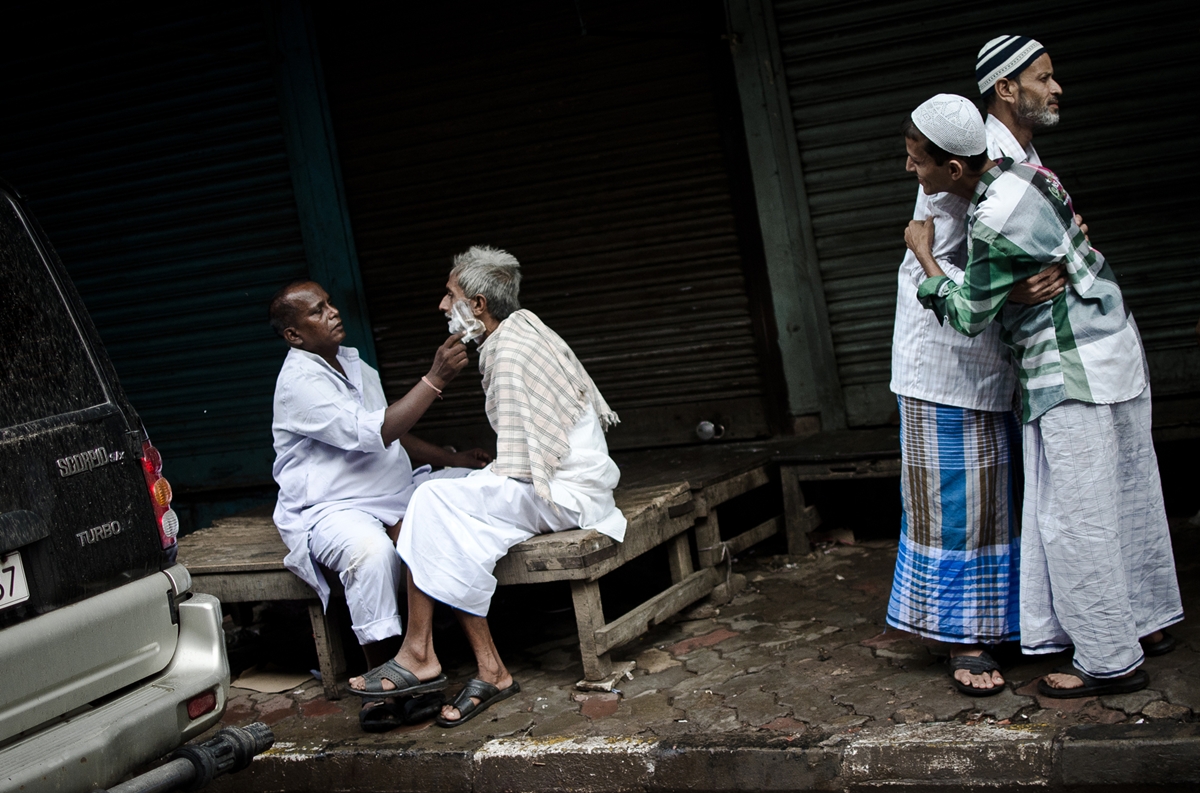
People greet each other on the day of Eid-Ul-Fitr at Chitpur in Kolkata.

Holy Qur’an being read at a madrasa in Barrackpur near Kolkata.

Tarzina, a young girl who dropped out school quite early and got married due to the poor financial condition of her parents, now makes household goods under the supervision of a local municipality at Barasat near Kolkata.

Ramzan Ali dropped out of school at eight. He now works as day labour at various construction sites around Kolkata. Thousands of people like him have migrated to bigger cities from their native places in Malda and Murshidabad in search of a livelihood and the number is only growing by the day.
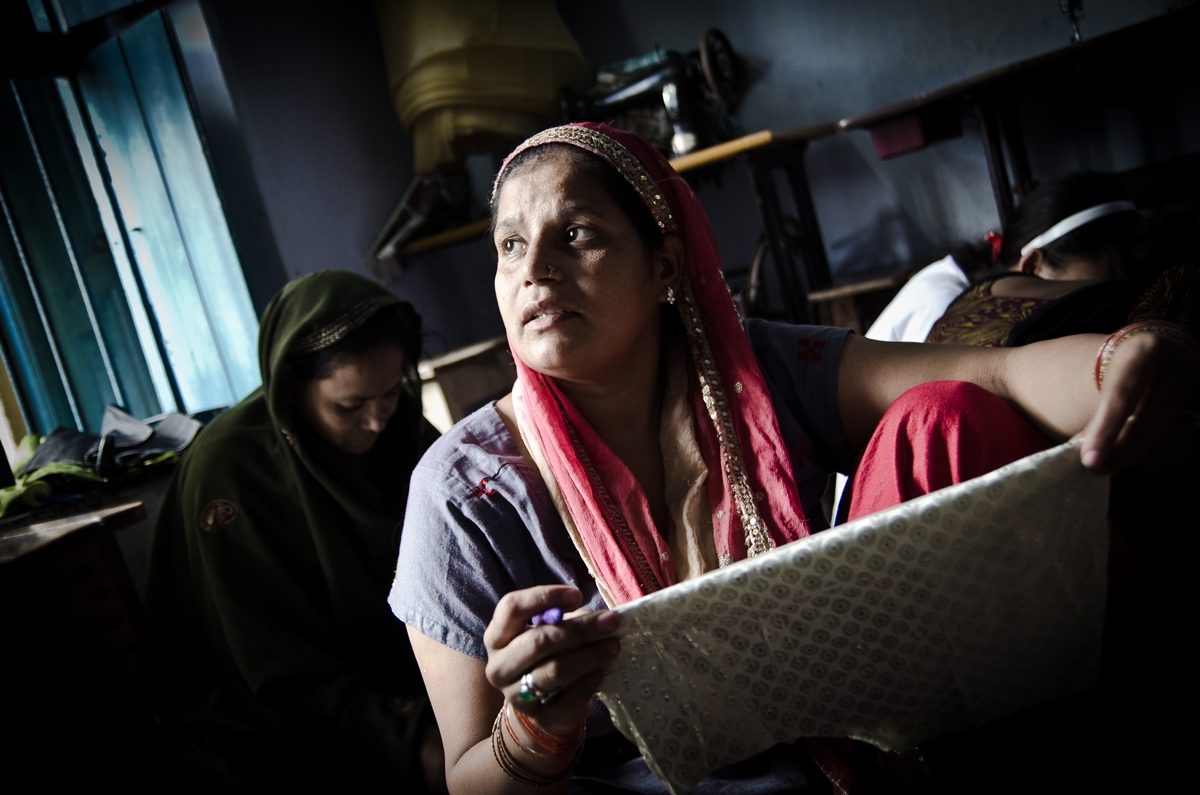
Afsar Bagum runs a small embroidery shop at Khidderpur area in Kolkata. She could not study much owing to circumstances but is happy with the way her business is running.
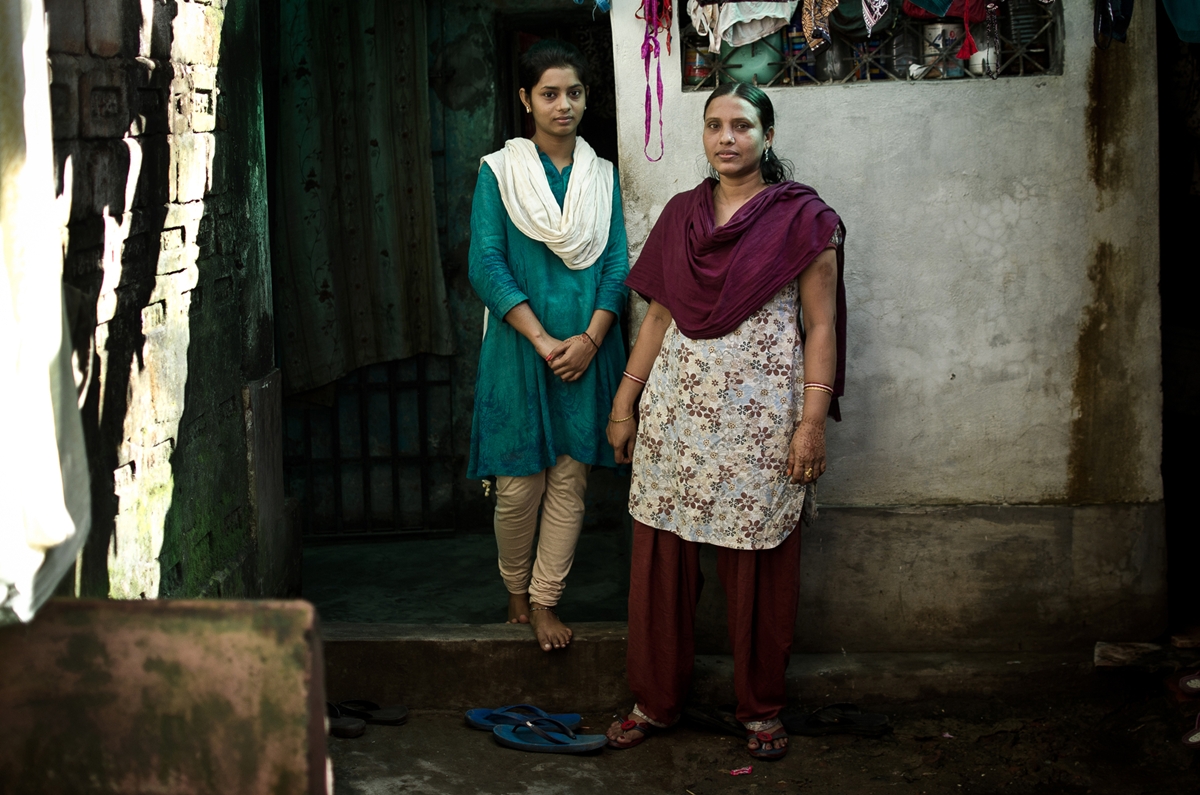
Kainath Khatun, a second-year Commerce student, at her Mominpur residence in southern Kolkata with her mother. She lives in a room with her parents and sister with whom she fights everyday to continue her education.

A wall writing elaborates the importance of education at Mominpur area in Kolkata.

Maidul Islam with her mother at their home in Kazipara, about 25 kilometres from Kolkata. Maidul gets special coaching from a local organization free of cost and his domestic help mother is very happy that she does not need to worry about her son’s education.

Ruksana leaves for college from her Mominpur residence in Kolkata.
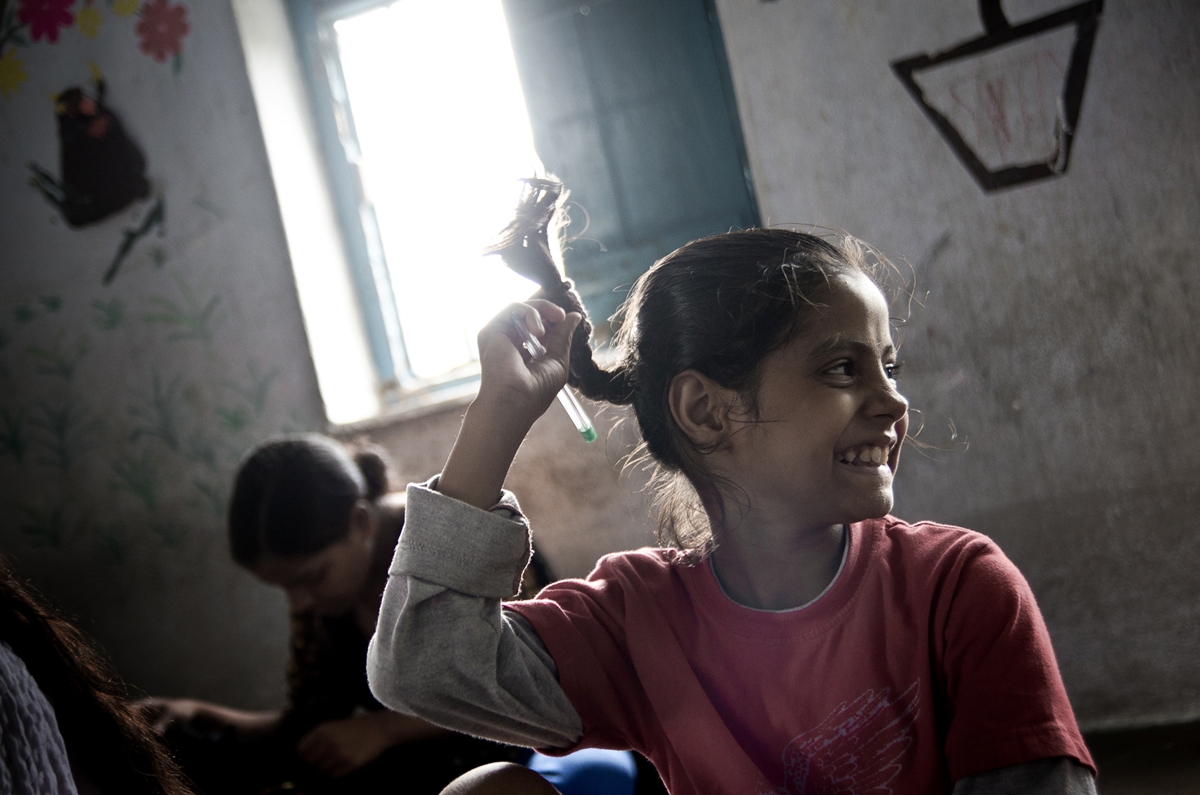
Shabana Khatun enjoys her class at a community coaching center at Ekbalpur in Kolkata, one of the many run by some non government organizations.

Children busy in a painting class at a school under madrasa board of education at Basirhat, West Bengal.

Farzana practices some activities in a physical education class at a local community center in Ekbalpur in Kolkata.

Girls at a group study session at a community school in Mominpur, Kolkata.

A girl draws on the board at a rural madrasa in Murshidabad.

Maidul Rahman, a post-graduate student of history, prepares for his next day class at his hostel room in Kalyani University, 50 kilometres from Kolkata.
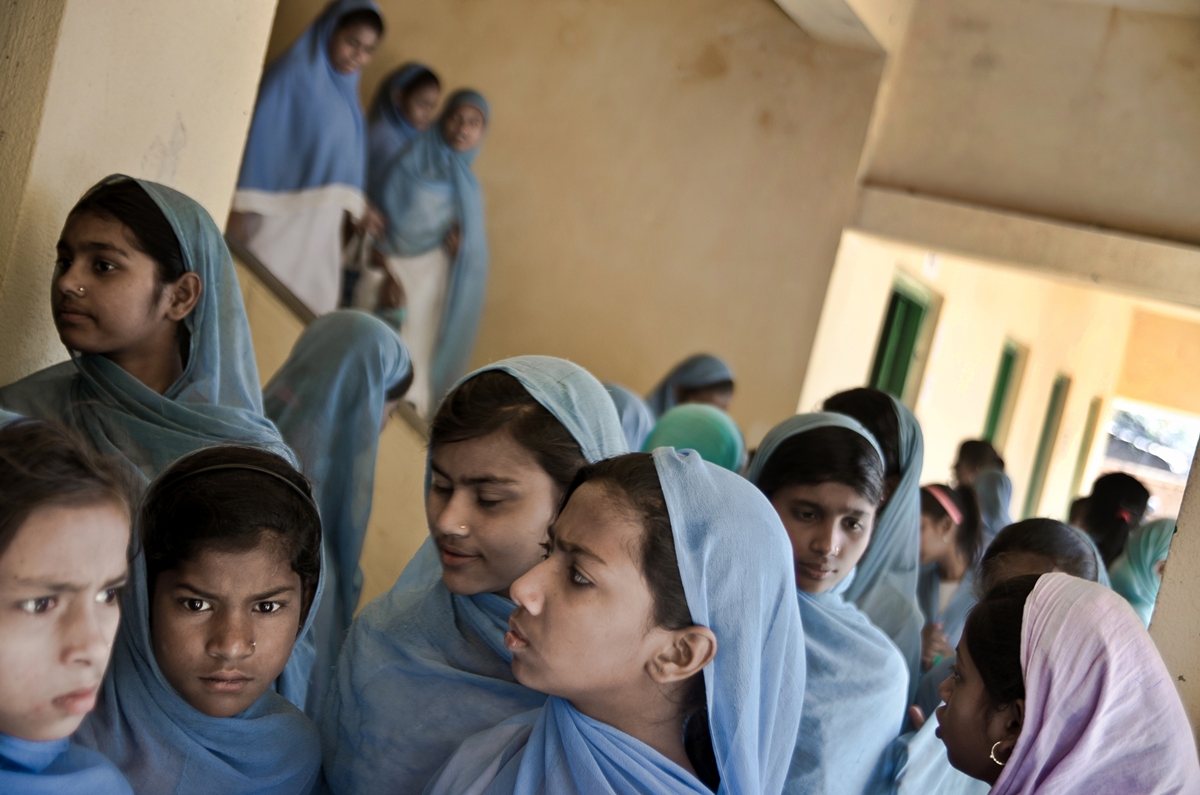
Girls gather after a class at a state-run madrasa school in Murshidabad.
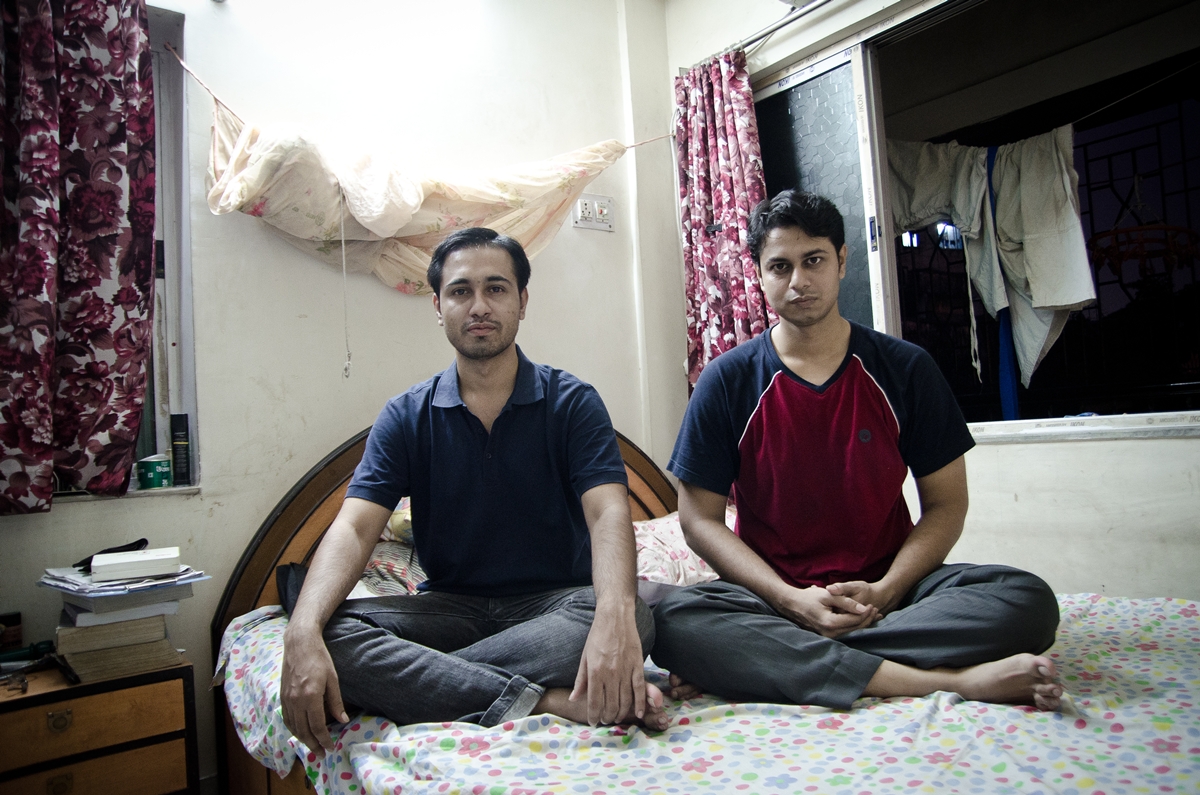
Two brothers Ekbal (left) and Nurul (right) at their residence in Park Circus, Kolkata. Ekbal has just become a doctor and Nurul has completed his Masters in Engineering. Their father happens to be a renowned doctor and both have never faced any difficulties during their studies as they received all kinds of support.
Bio:
